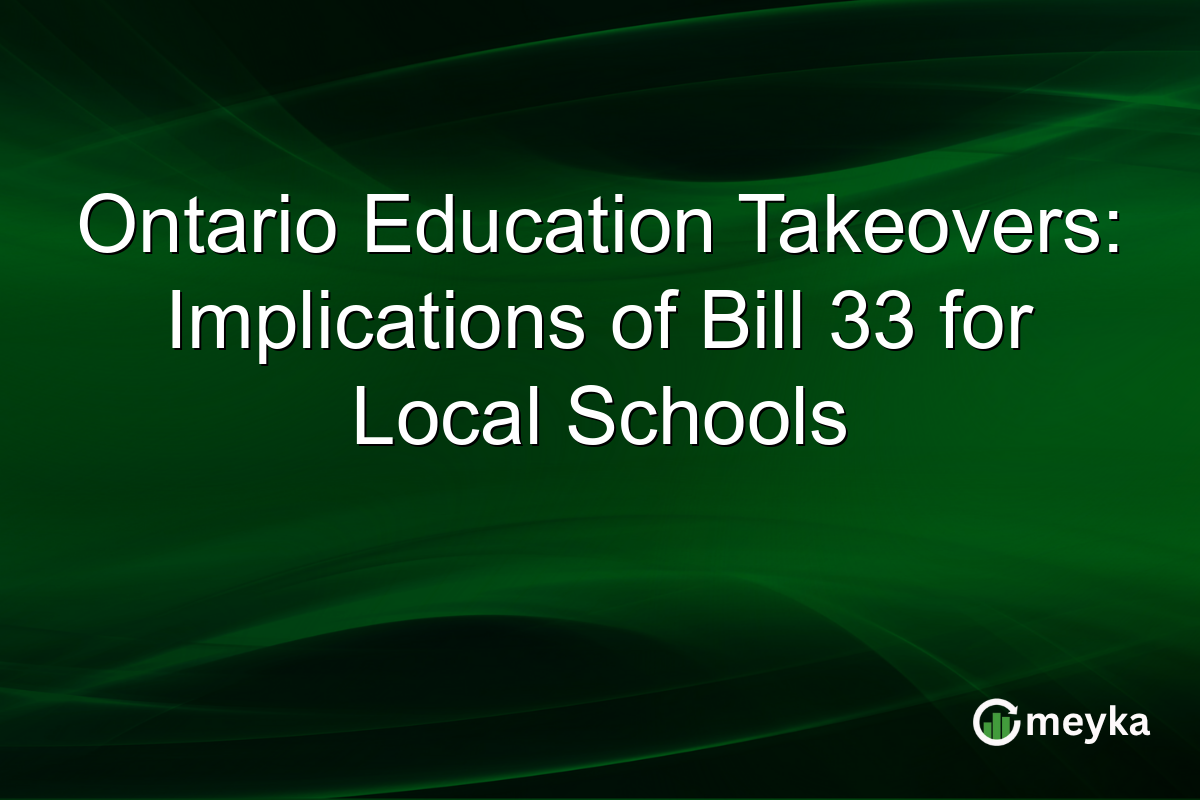Ontario Education Takeovers: Implications of Bill 33 for Local Schools
Ontario’s recent legislative move, embodied in Bill 33, has granted the Education Minister notably increased authority over school board management. This shift is a significant pivot from traditional local governance to more centralized state control. As discussions unfold, the implications for educational administration across the province draw varied opinions from stakeholders.
Continue Reading on Meyka
This article is available in full on our main platform. Get access to complete analysis, stock insights, and more.
Read Full Article →





